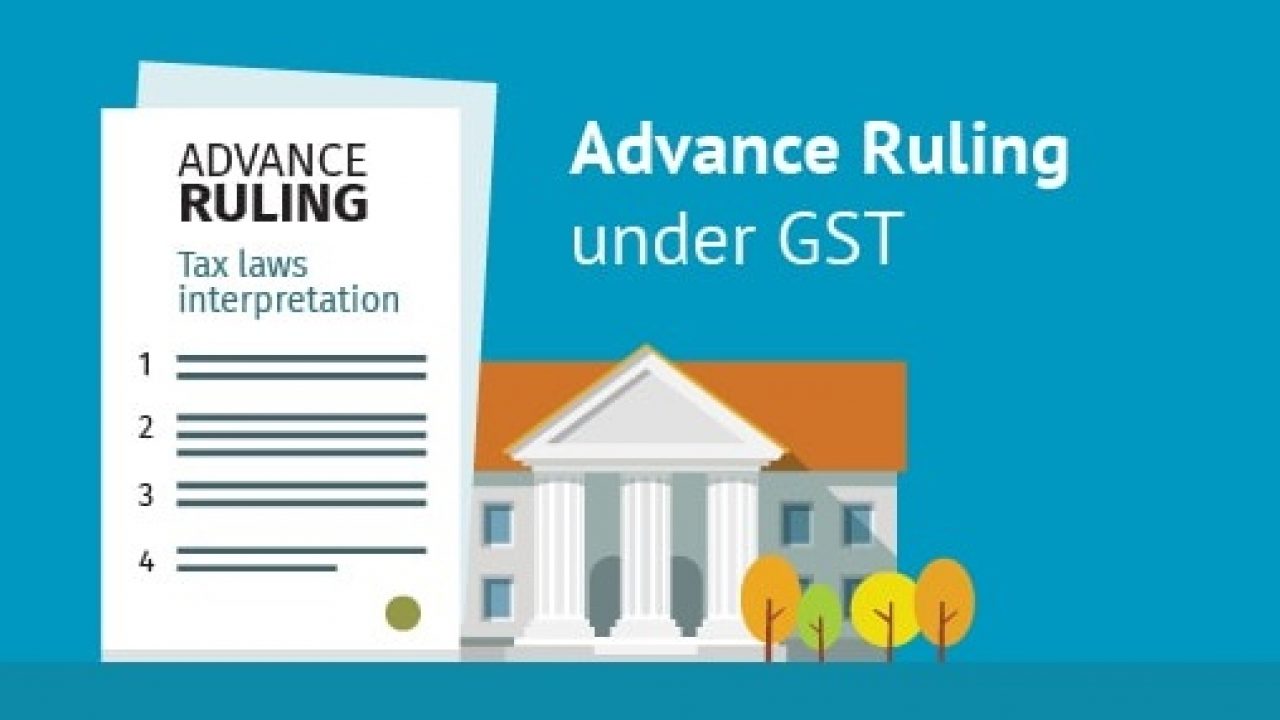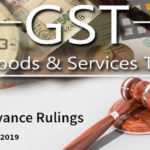- Whether GST is applicable on sales of business on going concern basis along with all assets and liabilities?
Held: No
In case of Rajashri Foods Pvt Ltd-AAR Karnataka held that transfer of business /unit as a going concern along with all assets and liabilities, either as a whole or an independent part thereof, for a lump sum consideration does not constitute an activity taking place in the course of business or for furtherance of business. However, since the word “includes” has been used in Section 7(1) the scope of supply goes beyond the meaning of the expression “in the course or furtherance of business”. Therefore in the case of the transfer of a going concern even if the act of transfer does not constitute an activity carried out in the course of regular business or for furtherance of business, the activity may still qualify to be termed as a supply. Further transfer of business assets as per Entry Sl. 4 of Schedule-II is considered as supply of goods. The transfer of business assets implies that a part of the assets are transferred and not the whole business. It is the applicant’s case that the entire business is proposed to be transferred, where all assets and liabilities will be transferred to the new owner and business would have continuity, regularity and permanency. Further in part 4(c) of Schedule II it is provided that when the business is transferred as a going concern then it does not amount to supply of goods. It, therefore, becomes clear that such transfer of business does not constitute a supply of goods.
Further the Notification, No. 12/2017- Central Tax (Rate) dated 28th June 2017 in Column number 3 of the Table gives the description of the services. Serial number 2 of the Notification provides for “Services by way of transfer of a going concern, as a whole or an independent part thereof”. This indicates that the activity of transfer of a going concern constitutes a supply of service. The Notification further provides “Nil‟ rate of tax on such a supply.
http://gstcouncil.gov.in/sites/default/files/ruling-new/06-Rajashree%20Foods-AAR-order.pdf
2. Whether input tax credit is admissible on inward supplies for construction of warehouse which are constructed by using pre-fabricated structure?
Held: No
In case of Tewari Warehousing Co. Pvt. Ltd.-AAR West Bengal the facts are that the applicant is stated to be supplying warehousing services, is constructing a warehouse on leasehold land, using pre-fabricated technology. According to the Applicant, it can be dismantled and reconstructed at a different location. The question was raised whether the input tax credit is admissible on the inward supplies for construction of the said warehouse? It was contended that anything embedded in the ground and is not movable (except in certain cases like standing timber, grass, growing crops and the like) or anything that is permanently fixed to such things which are so embedded to the ground can be called an immovable property. Further it can be dismantled and moved from one place to another. The Applicant further argued that the System is movable property and, therefore, the provisions of section 17(5) (c) & (d) of the GST Act, blocking input tax credit on inward supplies for construction of immovable property, is not applicable. It was held that the Applicant is constructing a warehouse that is intended to be used as a permanent structure, and associated with beneficial enjoyment of the land on which it is being built. The technology used for the construction of the warehouse involves the application of pre-fabricated structures and also civil work for supporting the pre-fabricated structure and developing the floor of the warehouse. The warehouse cannot be conceived without beneficial enjoyment of the civil structure embedded on earth. The warehouse being constructed is, therefore, an immovable property, and the input tax credit is not admissible on the inward supplies for its construction, as the credit of such tax is blocked under section 17(5) (d) of the GST Act.
http://www.wbcomtax.nic.in/GST/GST_Advance_Ruling/40WBAAR2018-19_20190218.pdf
3. Whether ITC is available on GST charged by a contractor for hiring buses/cars for transportation of employees?
Held: No
In case of YKK India Pvt. Ltd. – AAR Haryana it was held that the services of the contractor for hiring of buses/cars for transportation of employees qualify as “rent-a-cab” services and thus ineligible to claim ITC as per section-17(5) (b) (iii). The contention of the applicant that due to difference in phrases “hire” and “rent”, in their case, the impugned would not qualify as “rent-a-cab”, have no grounds, as “hiring” and “renting” are synonyms in terms of the judgment in case of Commissioner of Service Tax Vs. Vijay Travels [2014 (36) S.T.R.5139 (Guj.)]. Further it was also observed that the impugned service is not a service which is obligatory for an employer to provide to its employees under any law for the time being in force or it is an inward supply of services is being used by the applicant for making an outward taxable supply of the same category of services or as a part of a taxable composite or mixed supply.
4. Whether the services provided by the owner of boarding house to the students for lodging along with food is a composite supply within the meaning of section-2(30) of the GST Act, where the supplier charges a consolidated amount for combination of services?
Held: No
In case of Sarj Educational Centre-AAR West Bengal, the facts are that the applicant has entered into an MOU with St. Michael’s School under the management of Sunshine Educational Society, for providing boarding facility exclusively to the students of the said school. The boarding facility shall include lodging, housekeeping, laundry, medical assistance and food. The consideration is a consolidated charge on the individual boarder for the combination of the services. It was held that the bundle of services offered to the recipients consists of both taxable and non taxable supplies which are not indivisible. Therefore, bundles of taxable supplies that are inseparable and supplied only in conjunction with one another in ordinary course of business. The services the Applicant supplies are not, therefore, composite supply, as defined under Section 2(30) of the GST Act. Therefore, the combination of services offered to the recipients is a ‘mixed supply’ within the meaning of section-2(74) of GST Act.
http://www.wbcomtax.nic.in/GST/GST_Advance_Ruling/42WBAAR2018-19_20190226.pdf
5. Whether GST is leviable on the rent payable by a Hospital, catering life saving services?
Held: Yes
In the case of M/s Tathagat Health Care Centre LLP-AAR Karnataka, it was held that during the service tax regime, the rent, on the room service provided to the heart care patients undergoing treatment, was exempt from service tax under notification no. 25/2012 ST dated 20-06-2012. In the GST regime, hospital services are all exempt from GST. Hence the hospital does not have any output service tax to set off against the input tax arising from payment of GST on rent. Renting in relation to immovable property is defined at 2(zz) of the Notification No. 12/2017- Central Tax (Rate) dated 28.06.2017 as (zz) “renting in relation to immovable property” means allowing, permitting or granting access, entry, occupation, use or any such facility, wholly or partly, in an immovable property, with or without the transfer of possession or control of the said immovable property and includes letting, leasing, licensing or other similar arrangements in respect of immovable property”. The impugned service of Rental or leasing services involving own or leased non-residential property is classified under the heading (SAC) 997212 and is taxable under GST. Further no specific exemption is available under any notification for the time being in force for the said service. Also there is no provision available in the Act which allows exemption on an input service if the output service provided by the taxable person is exempt.
6. In case of invoices being raised by supplier in the previous month and goods being received in the succeeding month, when does the input tax credit can be availed by the recipient?
In the case of Pasco Motor LLP-AAR Haryana, the facts of the case were that the applicant purchases goods from its vendor having different locations in the Country. The goods remained in transit for roughly 5-10 days. The sales invoices are raised in the end of the month by its vendor but material arrives to its place only in the next month. So in such a situation the question is when the applicant would claim ITC? Whether in the month in which invoices raised or in the month in which goods actually received by them? The applicant contended that when the goods are delivered to transport for further movement it is deemed to be delivered to registered person only within the meaning of the provision of section 16. So ITC should be available immediately. However, the AAR held that such situation is covered for to ‘Bill to- Ship to’ transactions. Thus the input tax credit shall be available to applicant only when the applicant has received goods. The reference of section-12- “Time of Supply” of the CGST/HGST Act was also given in the ruling.
7. Whether IGST can be charged in “Bill to-Ship to” transactions wherein both supplier and recipient are located in same state and third party is located in different state?
Held: Yes.
In case of Ms. Umax Packaging–AAR Rajasthan held that in case of “Bill to-Ship to” transactions wherein supplier and recipient are located in same state and third party is located in different state, IGST would be chargeable on both the transactions i.e. Supplier to Third Party and Third Party to Recipient even though goods have been delivered in same state and have not crossed the boundaries of the State of the Original.
http://gstcouncil.gov.in/sites/default/files/ruling-new/Raj.23.2018-19%20-Umax.pdf
- Whether ITC is available for ambulance purchased for employees as per legal requirements under Factories Act, 1948?
Held: No
In the case of Nipha Exports Pvt Ltd.-AAR West Bengal, it was held that input tax credit on inward supply of ambulance, being a motor vehicles, is not admissible under section 17(5)(a).An exception has been carved out under section 17(5)(b)(iii)(A) for services which are obligatory for an employer to provide to its employees under any law for time being in force is limited only to rent-a-cab, life insurance and health insurance and, hence, input tax credit is not admissible on ambulance purchased. Section-17 of CGST Act blocks any such enjoyment, even though provisioning of ambulance service to employees is obligatory under Factories Act, 1948.
http://www.wbcomtax.nic.in/GST/GST_Advance_Ruling/43WBAAR2018-19_20190226.pdf
8. What is the nature and rate of tax applicable on supply of sweetmeats, namkeens, Dhokla, snacks, ice-cream, Jalebi, chola bhatura, takeaway of these products etc. from ground floor of sweetshop which also runs restaurant in first floor?
In case of M/S. Kundan Misthan Bhandar–AAR Uttarakhand held that:
(i) The supply shall be treated as supply of service and sweet shop shall be treated as extension of restaurant;
(ii) The rate of GST on aforesaid activity will be 5% as on date, on the condition that credit of input tax charged on goods and services used in supplying the said service has not been taken;
(iii) All the items including takeaway items from the said premises shall attract GST of 5% as on date subject to the condition of non availment of credit of input tax charged on goods and services used in supplying the said service
9. Whether registration is required in the State of West Bengal where goods are imported and stored in Custom Bonded warehouse and dispatched to customers there from directly on billing from Mumbai?
Held: No
In case of M/S. Sonkamal Enterprises Pvt Ltd–AAR Maharashtra held that the applicant stores the goods at rented Customs Bonded Warehouse. Goods are removed from the warehouse only when they get orders from customers and terms of delivery will be Ex-Terminal. Further risk and rewards will be transferred to customer the moment the goods are cleared. It was held that the applicant is not required to obtain the registration in West Bengal as supply of goods and invoicing would be done from Mumbai.
- Whether applicant is eligible to take Input Tax Credit of the CGST & SGST charged by M/s Catalyst Consulting Chennai in respect of brokerage services and adjust the same against output tax payable against Renting of immovable property?
Held: Yes
In case of Adwitya Spaces Private Limited- AAR Tamilnadu held that the applicant is eligible to take credit of the CGST and SGST charged by M/s. Catalyst Consulting Chennai in the Tax invoice No. C-007/ 17-18 dated 20.12.2017 raised on the applicant for real estate brokerage services for renting of property on a fee basis rendered by Catalyst Consulting, subject to the conditions as per Section 16, 17 and 18 of CGST & SGST Act.
http://gstcouncil.gov.in/sites/default/files/ruling-new/TN.13_AAR%20-2018-ASPL.pdf
10. Whether ITC admissible on GST paid for stay in hotel accommodation provided to GM/MD of company?
Held: No
In case of Posco India Pune Processing Center (P.) Ltd. -AAR Maharashtra held that Input Tax Credit is not admissible in respect of GST paid for stay in case of rent free hotel accommodation provided to General Manager and Managing Director of company as same is used for personal consumption of MD/GM and is not in furtherance of any business.
Our Comment: This advance ruling has created again the same dispute which the Income Tax authority often creates i.e whether a particular expenditure is business expense or personal nature. In case of a corporate entity it is a fact that the Company cannot act per se or as such. Rather its representative viz: Directors / CEO /CFO etc. acts on behalf of it. So in such cases it is believed that when the hotel accommodation is taken for official visit then there should not be a question of personal nature. Let’s wait and watch the further litigation which may arise on this issue.
11. Can a person adjust the ITC of one state’s CGST for payment of another state’s CGST?
Held: No
In case of Storm Communications Private Limited-AAR West Bengal, the main issue was whether the Applicant registered in West Bengal, can claim/adjust/avail ITC on the CGST & SGST charged on the invoices issued by Tamil Nadu suppliers. Here, the basic concept of “place of supply” comes into play. In this case, the location of the supplier, providing hotel, banquet hall or restaurant in Tamil Nadu and the location of the recipient i.e. the Applicant, receiving the service, is also Tamil Nadu. So, the Applicant can avail ITC on the said invoices in Tamil Nadu only, if registered in Tamil Nadu. In no case, the Applicant can claim/adjust/avail ITC outside Tamil Nadu on the said invoices, even if the invoices are issued as B2B mentioning the Applicant’s GSTIN in West Bengal.
As the Applicant is not registered under section 25(1) in Tamil Nadu, the SGST and CGST paid on intra-state inward supply in Tamil Nadu are not “input tax‟ to the said person. The GST Act does not contain any concept of “input tax” to an unregistered person. No credit of it is, therefore, admissible under the GST Act.
http://gstcouncil.gov.in/sites/default/files/ruling-new/WB_39_2018-19%20-SCPL.pdf
- Whether credit will be available in GST of office fixtures & furniture, A.C. plant & sanitary fittings on’ newly constructed building on its own account for furtherance of business and accounting entry is capitalized in books of account?
Held: No
In the case of Bahl Paper Mills Ltd.-AAR Uttarakhand, it was held that as per Explanation to the Section 17 of CGST Act, 2017 credit is not available in respect of land, building or any other civil structure.
Therefore, in view of the aforesaid provisions of law, Credit of GST paid in relation with building or any other civil structure is not available and since sanitary fittings are integral part of building or any other civil structure, credit of GST paid on such sanitary fittings is not available. However, credit of GST is available on office fixtures & furniture, AC plant.
http://gstcouncil.gov.in/sites/default/files/ruling-new/03-2018-19_Dtd_04-05-18_Uttrakhand.pdf
12. Whether registration required for electronic commerce operators (ECO) who are facilitating for conduct of religious functions between Pundits and customers, as the services of Pundits are exempted?
Held: Yes
In the case of Sadashiv Anajee Shete-AAR, Maharahtra it was held that the applicant(here ,the electronic commerce operator) is required to get registered by virtue of section-24 of the CGST/MGST Act and liable to GST on transaction value being the commission amount. It is the Pundits who are providing religious services not the applicant. Hence only the Pundits are exempted for their services by virtue of Notification No.12/2017 Central Tax under Sr. No.-13.



